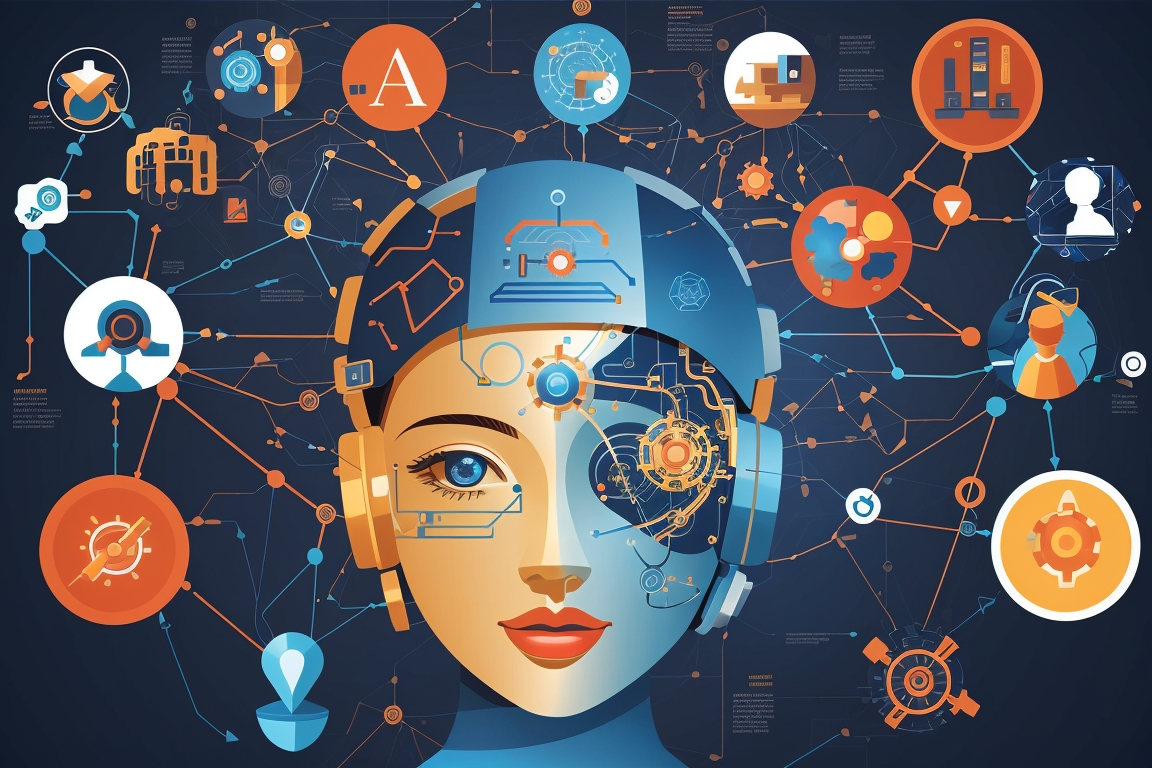Introduction: Artificial Intelligence (AI) is revolutionizing various industries and transforming the way we live and work. From self-driving cars to virtual assistants, AI is becoming an integral part of our daily lives. But did you know that AI can be categorized into different types based on its functionalities and capabilities? In this article, we will explore five fascinating types of artificial intelligence and uncover the secrets behind their applications and potential.
1. Reactive Machines:
Reactive Machines are the most basic form of AI that has no memory or ability to learn from previous experiences. These machines solely rely on the current input and output to make decisions. They are designed to react to specific situations but cannot form memories or have a concept of the past or future. Examples of reactive machines include chess-playing AI programs that can analyze the current game state but have no memory of past moves.
2. Limited Memory:
Limited Memory AI systems can retain some information from previous experiences to make more informed decisions. These systems use past data as a reference and learn from it to improve their performance. For example, self-driving cars use limited memory AI to learn from millions of driving scenarios to enhance their navigation and decision-making abilities.
3. Theory of Mind:
Theory of Mind AI is a more advanced type of AI that is capable of understanding the thoughts, emotions, and intentions of humans. These AI systems can interpret and predict human behavior, allowing them to interact more effectively with humans. While Theory of Mind AI is still in the early stages of development, it holds great potential for applications in fields like psychology, social assistance, and human-like robot interactions.
4. Self-Awareness:
Self-Aware AI is the most complex and sophisticated type of artificial intelligence. These AI systems not only possess the ability to understand human emotions and behavior but also have self-awareness and consciousness. While true self-aware AI is largely theoretical at this stage, experts believe it could have profound implications in areas such as robotics, ethics, and consciousness studies.
5. Artificial General Intelligence (AGI):
Artificial General Intelligence (AGI) is the ultimate goal of AI research. AGI refers to AI systems that can understand, learn, and apply knowledge across various domains, just like a human being. Unlike specialized AI systems that excel in specific tasks, AGI aims to replicate human-level intelligence and adaptability. While AGI is still largely hypothetical, researchers and scientists are working towards achieving this milestone.
Artificial Intelligence is a diverse field with various types and subfields. Each type of AI offers unique capabilities and potential applications. From reactive machines to self-aware AI and the quest for AGI, AI continues to evolve and reshape our world. Understanding the different types of AI can help us appreciate the progress made so far and imagine the possibilities for the future. As technology advances and AI becomes more sophisticated, we can expect even more fascinating types of artificial intelligence to emerge, revolutionizing our world in unimaginable ways.
